Save - MTU Aero Engines
Save - MTU Aero Engines
Save - MTU Aero Engines
Create successful ePaper yourself
Turn your PDF publications into a flip-book with our unique Google optimized e-Paper software.
An Interface Between the Works<br />
Council and Company Management<br />
Market demands and deadline pressure frequently<br />
present challenges for the cooperation<br />
between the works council and company<br />
management. The right outcome can be<br />
especially hard to achieve in times of economic<br />
difficulty. The human resources department<br />
takes on the role of a bridge during<br />
the ensuing negotiations. It represents<br />
the interests of company management before<br />
the works council and informs the works<br />
council of relevant changes, while the works<br />
council, in accordance with the Works<br />
Council Act, defends the codetermination<br />
and collaboration rights of the company’s<br />
employees.<br />
The works council is an important partner<br />
for <strong>MTU</strong>, critically engaged in the continuous<br />
renewal of working conditions, which involves<br />
everything from changes in collective<br />
bargaining law to internal company agreements.<br />
It serves the important function of<br />
allowing employees to be heard. It is also a<br />
mediator between the forces of continuity<br />
and change at work within our company.<br />
The works council and company management<br />
generally agree on company goals, but<br />
when it comes to specific plans and concrete<br />
measures for achieving these goals,<br />
opinions often differ. Intense discussions<br />
and in-depth analyses of specialized<br />
aspects of an issue are often necessary<br />
before both sides can mutually present conclusive<br />
solutions. Out of this process arises a<br />
culture of reconciliation of conflicting interests.<br />
Such a culture is essential to finding a<br />
consensus that will satisfy all parties.<br />
The goal of present cooperation, for both the<br />
company and its employees, is to strike the<br />
right balance between increasing flexibility<br />
and tightening standards in a number of<br />
areas. The important issue of work-life balance<br />
demonstrates that measures making<br />
working conditions more flexible can be in<br />
the best interests of both the company and<br />
its employees. As patterns and paths of life<br />
cease to be determined by societal conventions,<br />
employees desire greater freedom in<br />
the arrangement of their private and family<br />
spheres and the use of their free time. The<br />
goal of the intensive negotiations is to reconcile<br />
employees’ desires with the company’s<br />
requirements and its possibilities, and<br />
work out better solutions for both sides.<br />
The works council elections to be held in<br />
early 2010 present candidates, both incumbents<br />
and challengers, with the task of<br />
plainly formulating their positions and clearly<br />
communicating what has been accomplished.<br />
For the first time, four tickets are<br />
campaigning for seats in the works council.<br />
The trend towards greater fragmentation<br />
apparent in contemporary politics is reflected<br />
in employee representation within the<br />
company. Only a unified works council can<br />
represent and realize the interests of all<br />
workers. Aside from the works council, the<br />
speakers’ committee of the executive staff<br />
is also up for reelection in 2010.<br />
Focal Points 2008/2009<br />
The negotiations of 2008 and 2009 succeeded<br />
in addressing important issues with<br />
transparent and reliable regulations. The<br />
transition from the former pay scale to the<br />
remuneration framework agreement ERA<br />
(Entgelt-Rahmen-Abkommen) began in 2007<br />
and was concluded in all three of <strong>MTU</strong>’s<br />
locations in Germany by 2009. Necessary<br />
additions were settled by means of company<br />
agreements. The dissolution of the adjustment<br />
fund, established in 2006 before the<br />
introduction of ERA, was arranged for 2010<br />
and regulated in a supplemental pay scale<br />
agreement. The fund assets will be distributed<br />
to all employees in accordance with<br />
their just demands by means of a fixed formula.<br />
Disbursement is scheduled for summer<br />
2010. A further supplemental pay scale<br />
agreement provided for the proposed twostage<br />
pay raise to be simplified into a single<br />
raise on March 1, 2009. In addition, employees<br />
will be compensated in the future with<br />
extra pay when they are required to perform<br />
work tasks that go beyond the range of their<br />
contractual duties.<br />
Changes in the inflow of orders sometimes<br />
affect unforeseeable shifts in the demand<br />
for labor in certain product lines. In reaction<br />
to the current rise in demand for a specific<br />
aero engine type, a pilot project was introduced<br />
to take advantage of unexploited<br />
machine capacities by means of 18 shifts per<br />
week. This model is to be tested over a period<br />
of six months and should allow us to produce<br />
competitively and in rhythm with the<br />
order situation. Additionally, the pilot project<br />
promises to give us further insight into the<br />
use of new shift schedules.<br />
16 17


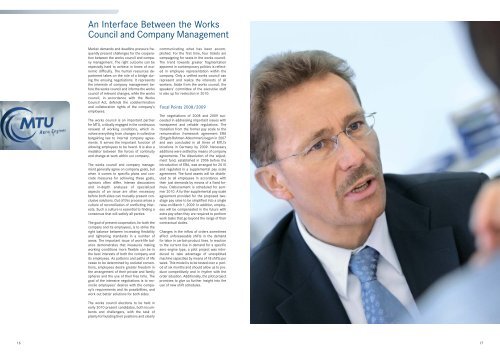
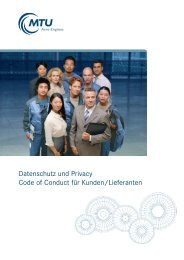
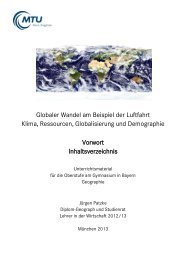
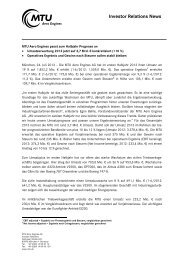

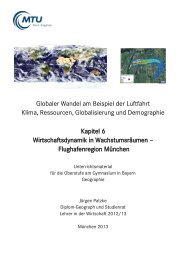
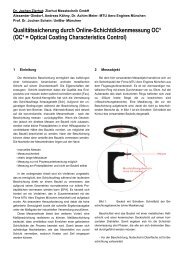
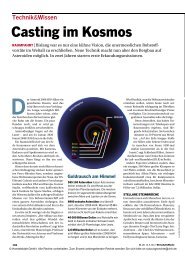

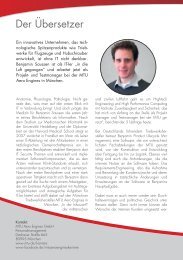
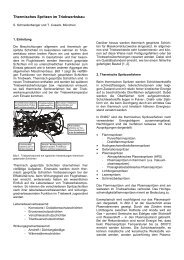
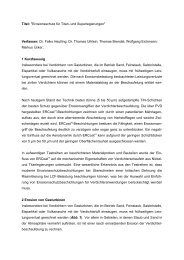
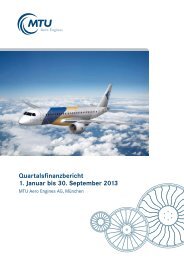
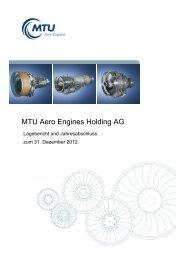
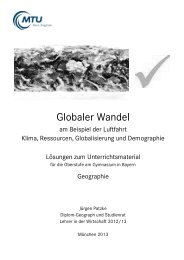
![Download PDF [5,37 MB] - MTU Aero Engines](https://img.yumpu.com/21945461/1/190x125/download-pdf-537-mb-mtu-aero-engines.jpg?quality=85)